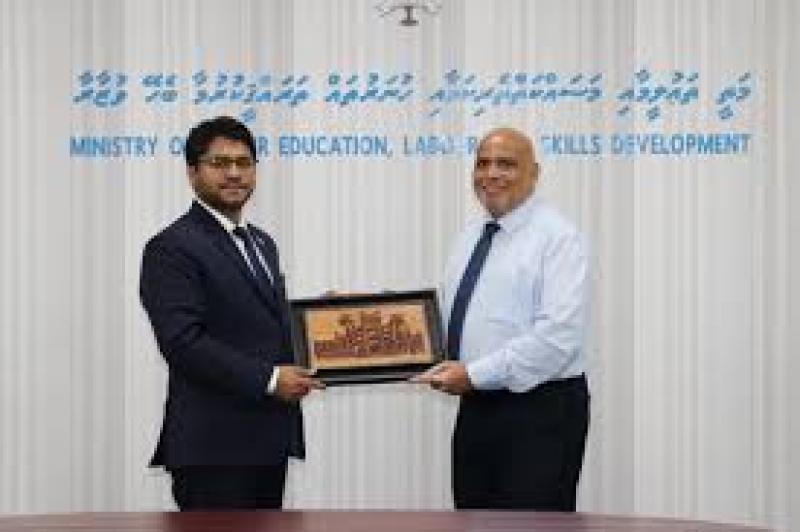- Middle East War Puts Bangladesh Jobs at Risk |
- Starmer criticises Trump, defends UK position not to allow use of its bases |
- Iran War: Nuke watchdog urges restraint amid ongoing strikes |
- 80pc tube wells in Chhatak run dry; water crisis acute |
- Advance Eid train ticket sale begins |
Maldives wants Bangladeshi university branches in Malé

The Maldives today proposed establishing branches of Bangladeshi universities in the island nation as part of an effort to deepen educational collaboration between the two countries and expand opportunities for Maldivian students.
The proposal came during a meeting between Bangladesh's High Commissioner to the Maldives Dr. Md. Nazmul Islam and Maldivian Minister of Higher Education, Labour and Skills Development Dr. Ali Haidar Ahmed held in Male, according to a message received here today.
Both sides discussed ways to further strengthen their longstanding partnership in higher education, technical education, skills development, and human resource growth.
Minister Ahmed praised Bangladesh's progress and contribution in the education sector.
He also proposed several areas of enhanced cooperation, including organising education fairs to promote study opportunities in Bangladesh, expanding internship programmes for Maldivian medical students, and facilitating technical and vocational training (TVET) through Bangladeshi expertise.
High Commissioner Islam reaffirmed that Bangladesh is well-positioned to serve as a regional hub for higher education and expressed Dhaka's readiness to work closely with the Maldives based on mutual trust, interests, and shared values.
He also highlighted the potential for collaboration between Bangladeshi institutions and Maldivian professionals in hospitality and tourism management, emphasizing mutual benefits for both nations.
The two sides agreed to take practical steps to enhance cooperation in education, research, and skills development, aiming to strengthen bilateral relations and promote sustainable progress, reports BSS.

